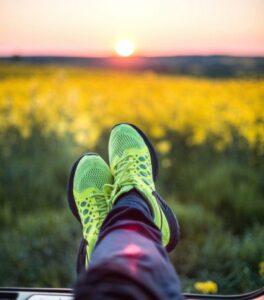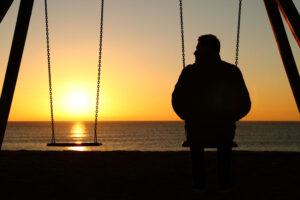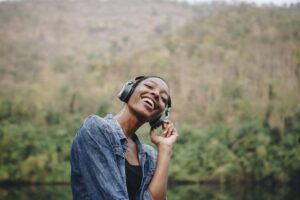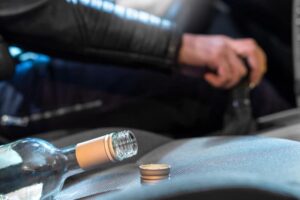Learning How to Relax Without Drugs and Alcohol
 One of the number one reasons people report using drugs and alcohol is stress. Learning to deal with life’s ups and downs without chemical assistance is a huge milestone in recovery from substance abuse. It’s impossible to stick to a sober lifestyle if you feel on edge the entire time. At Transitions Recovery Program, we teach you how to manage your stress and learn to relax and have fun while sober. This vital skill can be learned by everyone—including you.
One of the number one reasons people report using drugs and alcohol is stress. Learning to deal with life’s ups and downs without chemical assistance is a huge milestone in recovery from substance abuse. It’s impossible to stick to a sober lifestyle if you feel on edge the entire time. At Transitions Recovery Program, we teach you how to manage your stress and learn to relax and have fun while sober. This vital skill can be learned by everyone—including you.
Today, let’s look at how to re-learn how to relax without drugs and alcohol.
Remember a Time When You Knew How to Relax Naturally
You might think that there is no way that you can really relax without drugs and/or alcohol, but think back. Maybe you started to use in your childhood—that’s OK. Just try to remember a time before you started using. Maybe you were really little—that’s fine. But there was a time before you started your relationship with narcotics. During that time, you were able to relax without substances. You played and took naps and took baths—all without drugs or alcohol to help you unwind.
Remember what that was like. Tell yourself that you can learn how to do that again.
Here’s a few tricks to help you get there.
Mind Tricks to Help You Relax
When you’re feeling stressed and tense what’s going on in your mind?
Your thoughts are probably racing. You’re either jumping from one disturbing topic to the next or obsessing about a single topic in great detail. Either way, your mind is probably working overtime.
What’s happening in your mind is going to be reflected in your body and all of that stress is going to make it very difficult to relax.
The first step to relaxing is deliberately slowing down your thoughts. One way to do this is to take time everyday to unplug and find something calming to focus on. It can be a coloring book, a word puzzle, or a favorite (healthy) hobby. It can be gardening, cooking, tinkering, painting, fishing, birding, or welding—whatever interests you and keeps you focused.
If you don’t have a hobby, think back to what interested you as a child. Playdoh? Legos? Miniatures? Animals? Fort building? Indulge that interest again and see what happens.
Finding a “flow” activity that helps you stay in the moment and focus your attention on one thing in the here and now is incredibly useful for combating stress and learning to relax.
Body Tricks to Help You Relax
Your mind is only one part of the relaxation equation. Your body plays an equally important role in learning how to relax.
When we’re stressed, it’s easy to hold tension in the body, especially in the neck, jaw, shoulders, stomach, and pelvic area. Our breathing becomes faster and more shallow. Sometimes we lose track of what’s going on in our bodies entirely and we feel very disconnected and “in our heads.” Sound familiar?
Reconnecting with your body and learning to relax your body are two very important skills for combatting stress.
Regular exercise—whether that’s walking, running, dancing, or playing basketball—is an important part of a recovery lifestyle. Exercise releases endorphins and promotes a healthy brain chemistry but it also pulls us back into our bodies so we can recognize the signs of stress early, before it becomes unmanageable.
If you’re noticing signs of stress in your body, take a break. Stretch. Go for a walk.
If that doesn’t work—or it’s the middle of the night and you’re trying to go to sleep—try progressive relaxation. Tense up all the muscles in your body as hard as you can. Hold for five seconds. Then release everything. Now bring your attention to your feet. Relax them as much as you possibly can. Imagine them being wrapped in a relaxing color. Next, move your attention to your ankles, relaxing them as much as you possibly can. Continue on throughout your entire body—focusing on one small part at a time. You’ll be shocked at how many extra pockets of tension you’re able to identify and relax.
Extra Help for Relaxing Without Drugs or Alcohol
Want more relaxation tricks? Keep experimenting to find what works best for you. You may be surprised! If you don’t know where to start, try:
- Hot baths with Epsom salts
- Guided meditation
- Sound baths (Google it)
- Watching ASMR videos on YouTube
- Lavender essential oils
- Prayer and/or meditation
- Chamomile or Kava Kava tea
- Self-massage
- Restorative Yoga or Tai Chi
- Drumming or Dancing
- People watching
- Journaling
Learning to Relax in Recovery is Paramount
Our bodies need rest and our minds need peace. Learning to relax without the help of drugs and alcohol is a skill that takes practice. Don’t be shocked if it’s hard at first—that just means you’re not used to it. Keep at it and you’ll find that it becomes easier and easier. At Transitions Recovery Program, we’ll help you find ways to relax that work for you. Give us a call at 800-626-1980 today to learn more about how we can help you de-stress and live the life you’ve always wanted.

















